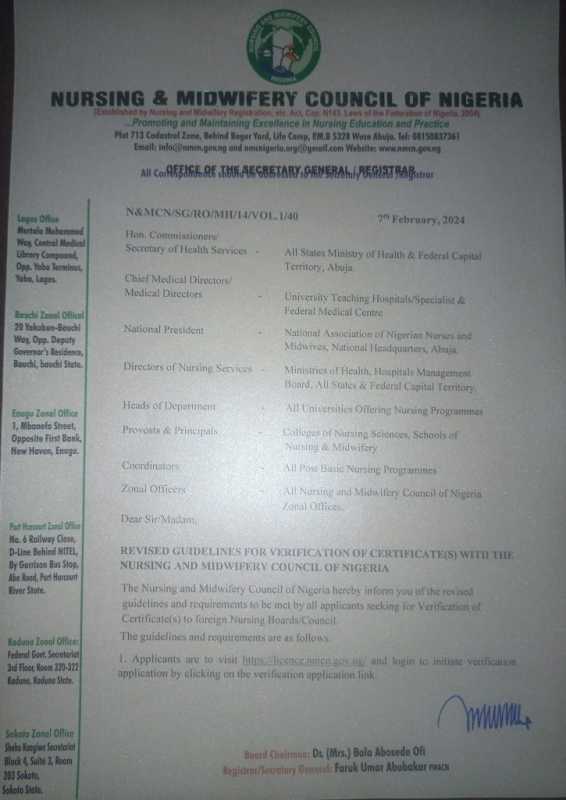Health
Nursing Council of Nigeria Revises Guidelines for Certificate Verification with Foreign Boards

The Nursing and Midwifery Council of Nigeria (NMCN) has recently announced revised guidelines and requirements for individuals seeking certificate verification with foreign nursing boards or councils. The move aims to streamline the process and ensure that qualified nurses meet the necessary standards when seeking employment opportunities abroad.
The revised guidelines, which were signed by the Registrar/Secretary General of NMCN, Dr. Faruk Abubakar, highlight several key requirements for applicants. Firstly, individuals must have a minimum of two years of post-qualification experience from the date of issuance of their permanent practicing license.
The council has also introduced an online portal for verification applications. Interested applicants can visit the NMCN website and login to initiate the verification process by clicking on the designated link. A non-refundable fee is required for verification, which covers the cost of courier services to the applicant’s institution of training, place of work, and the foreign board.
In addition, the NMCN now requires eligible applicants to obtain a letter of good standing from their place of work and the last nursing training institution attended. These letters should be addressed directly to the Registrar/CEO of the Nursing and Midwifery Council of Nigeria. Any application with a provisional license will be rejected.
It is important to note that the council will not accept letter(s) of good standing from the applicant and they must be sent directly.
The Nursing and Midwifery Council of Nigeria plays a vital role in ensuring the delivery of safe and effective nursing and midwifery care in the country. This move to revise the guidelines for certificate verification is aimed at maintaining high standards in the nursing profession and safeguarding the interests of both the professionals and the public.












